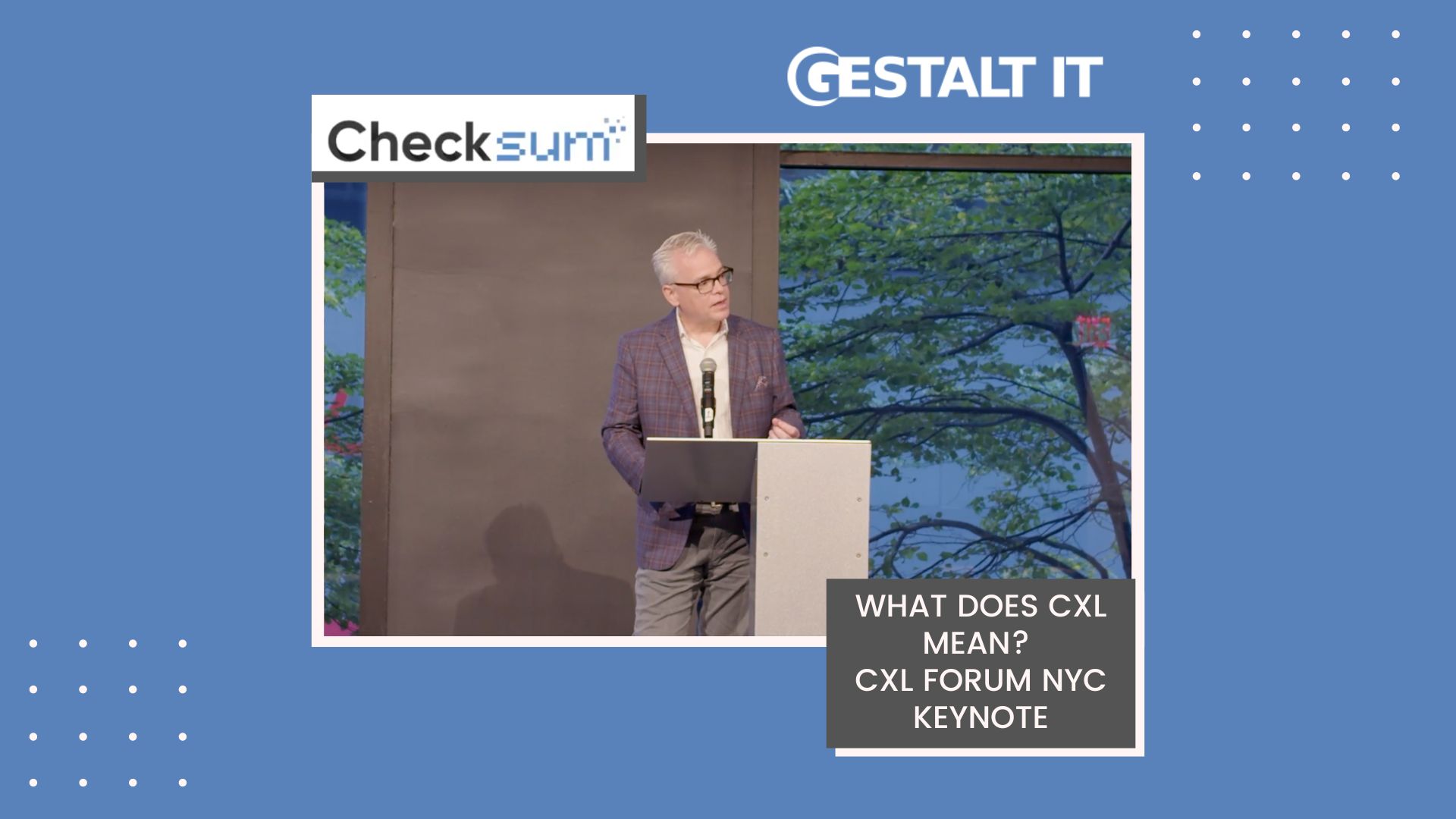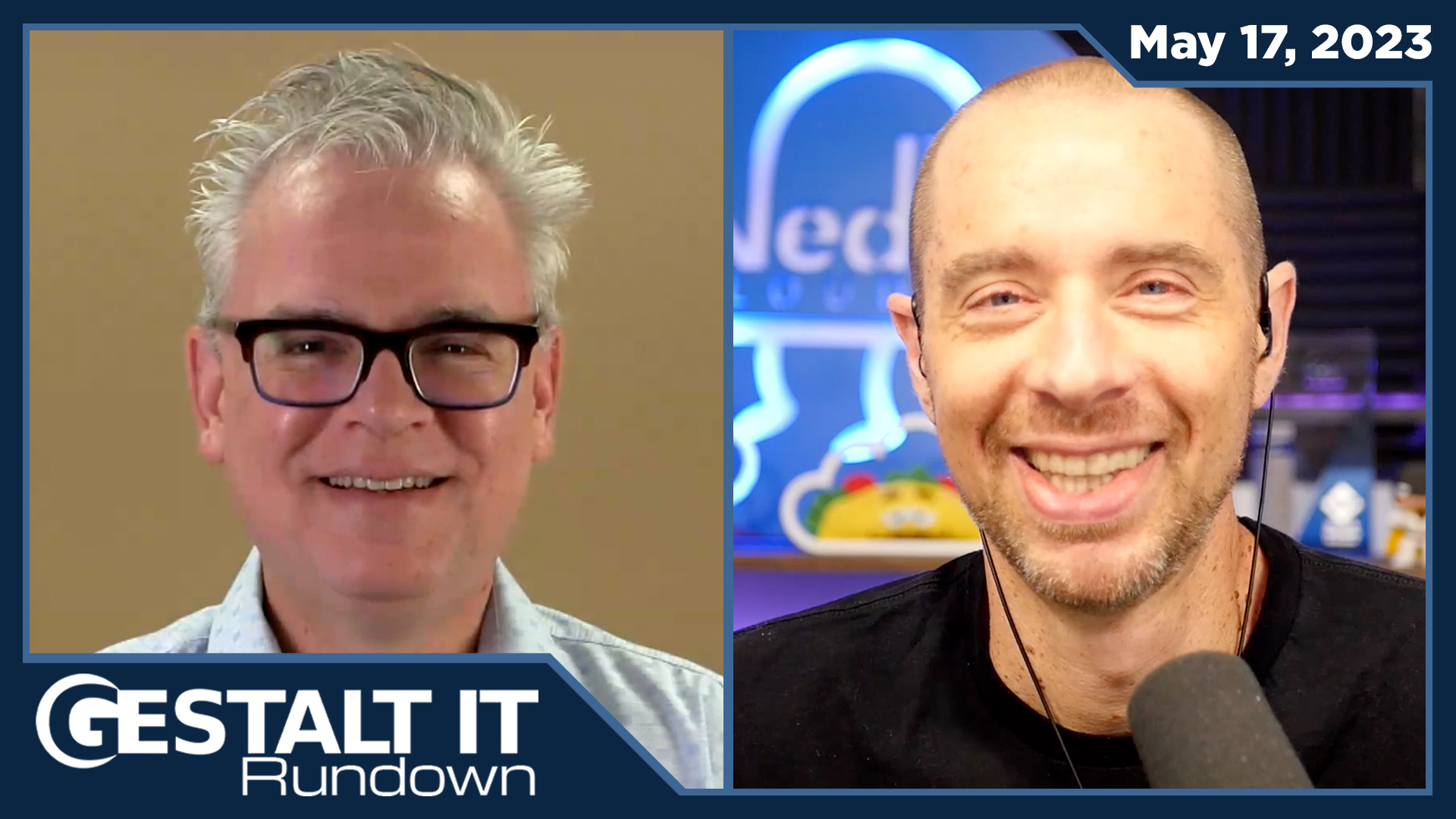The Department of Defense’s Joint Enterprise Defense Infrastructure contract was always going to be a hotly contested affair, worth well over $10 billion over the course of a decade. But when it was announced in 2017, no one could have imagined the bizarre twists the turns the bidding process would take. This winner-take-all contact has dragged on for more than three years, and while Microsoft has been declared the official winner, the legal wrangling makes this feel far from over. If you haven’t kept up on the news, Rich Stroffolino is here to give you a comprehensive overview.
Transcript of Checksum Episode 3: What’s Going on with the JEDI Contract?
Here at Gestalt IT, we usually don’t get too caught up in things like customer wins. Organizations make purchasing decisions based on a host of interconnected reasons. Sometimes a technology stack enables a unique capability. Sometimes a vendor can perfectly fit within a given budget. Sometimes it’s a continuation of an existing relationship. And most often it’s a combination of things.
The public cloud is a little different, in that the wins there feel a little more emergent than who chooses a storage array or networking stack. The former is usually a replacement for roughly the same thing, whereas the cloud might be a while new direction for an organization’s IT infrastructure.
Even still, it would need to be a pretty big win to draw my attention, if for no other reason there’s not much to them as a news story. But the US Department of Defenses Joint Enterprise Defense Infrastructure project is a big flipping contract, worth about $10 billion over ten years. Consider that in 2019, Google Cloud Platform brought in a total of $8.9 billion in revenue, and you could see that this contract represents a giant amount of business for any of the cloud providers.
The size of the contract was made even more prominent because the Pentagon announced that the JEDI contract would be awarded to a single vendor. The contract bidding process started in 2017 and basically since it was announced, every step along the way has been contentious. The names interested in the contract probably shouldn’t be too surprising, with the big three public clouds of AWS, Azure, and GCP all in from the get-go. This was joined by Oracle and IBM, as well as REAN Cloud, who gets to honor of being the Pete Best of public clouds. The DOD estimated that they would select a winner by September 2018.
If this contract was going to be a multi-vendor affair, the behind the scenes maneuvering would probably have been just as intense, but it probably doesn’t become front-page news. As a winner-take-all, the assumption was that Amazon, being the 800-pound cloud gorilla in the room, was the natural choice to win. It didn’t help that they also recently closed on a $600 million cloud contract with the CIA. Microsoft also has extensive government and DoD specific contracts, but reporting back in 2018 all pointed to AWS being the eventual winner. The fact that Google pulled out of consideration in October 2018 over concerns that it would violate principals over the ethical use of AI seemed to point to a solid two dog race.
That was confirmed in April 2019, after the Department of Defense announced that only AWS and Azure met the minimum requirements of the contracts, eliminating IBM and Oracle from consideration. Oracle, who let’s remember is solidly in the unmarked “other” column when discussing cloud market share, protested the decision, claiming that the process was “riddled with improprieties”. They had filed a lawsuit to stop the whole process before being formally eliminated from consideration, alleging that a former DoD employee named Deap Ubhi, who worked for AWS from 2014-2016 and later rejoined the company after recusing himself from working on the JEDI Contract after about 7 weeks. While the Pentagon had 72 people working on the bidding process, Oracle cited, among other things, a closed-eyes, tongue-out emoji in Slack sent by Ubhi when mentioning another cloud provider. Reaaaaaaaaaaly damning stuff.
A judge eventually dismissed the complaint, but new reporting from The Information says that, according to sources, Microsoft and Oracle initially agreed in April 2018 to work together to prevent Amazon from winning the contract, agreeing to push for the contract to be broken into pieces.
After all of this backroom dealing and legal wrangling, the decision on the contract was due to come out in August of September 2019, which meant it was the perfect time for the President to weigh in on this, who has a pretty public on-again-on-again disdain for any business connected to Jeff Bezos. So after some casual allegations of favoritism toward Amazon for the, remember as-yet unawarded contract, Defense Secretary Mark Esper announced he was reexamining the whole project.
Then the moment of truth, in October 2019, the Department of Defense announced that… drum roll please… Microsoft won the contract!!! This of course put to bed all controversy about the awarding process…
Oh… wait… no that didn’t actually do anything…. okay.
So right after the award was announced, Amazon filed a protest, saying there were minor problems like the winning bid being based on egregious errors and a result of improper political pressure. After reviewing the case, Judge Patricia E. Campbell-Smith released an opinion in March that Amazon was at least likely to win on the whole egregious errors part of their complaint, with the DOD improperly evaluating the cost of Microsoft’s data storage, and that as assessed, Microsoft’s proposal was not “technically feasible.”
Now the case is on hold, as the Judge gave the Pentagon until August 17th to reconsider technical aspects of the award and that it would give the “opportunity to reconsider the award decision at issue in light of (Amazon’s) allegations.”
So that’s where we stand with the JEDI contract as of May 25th. The Pentagon still hasn’t moved to the cloud, billions of dollars in cloud spend are still hanging in limbo, and Oracle still isn’t going to win the award any time soon.




